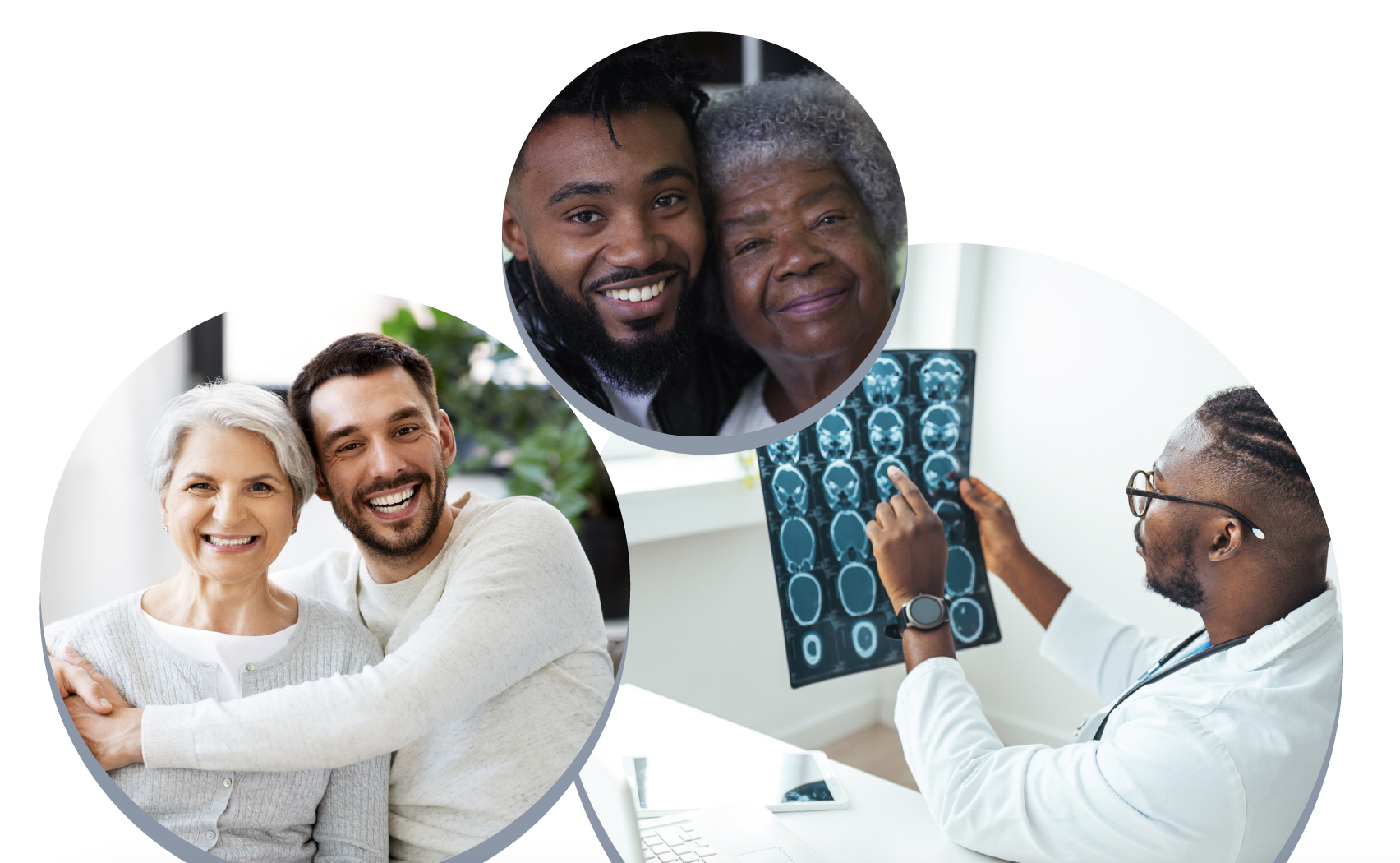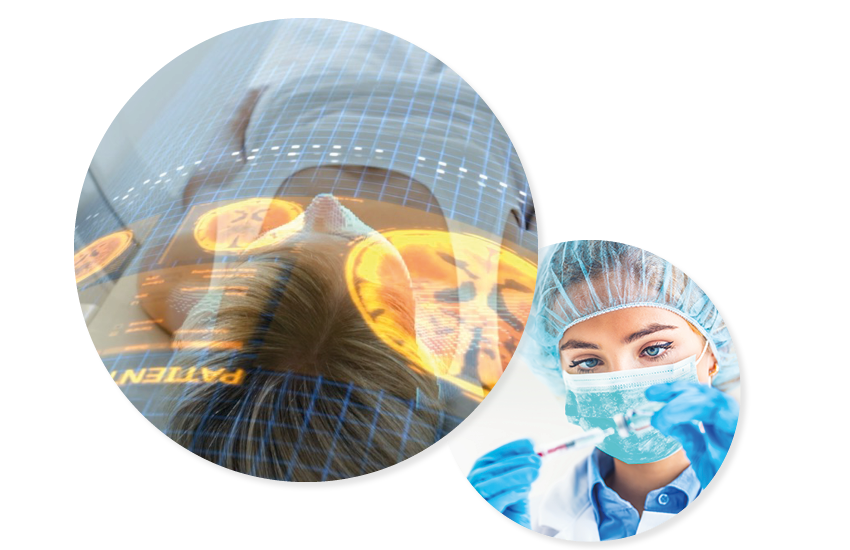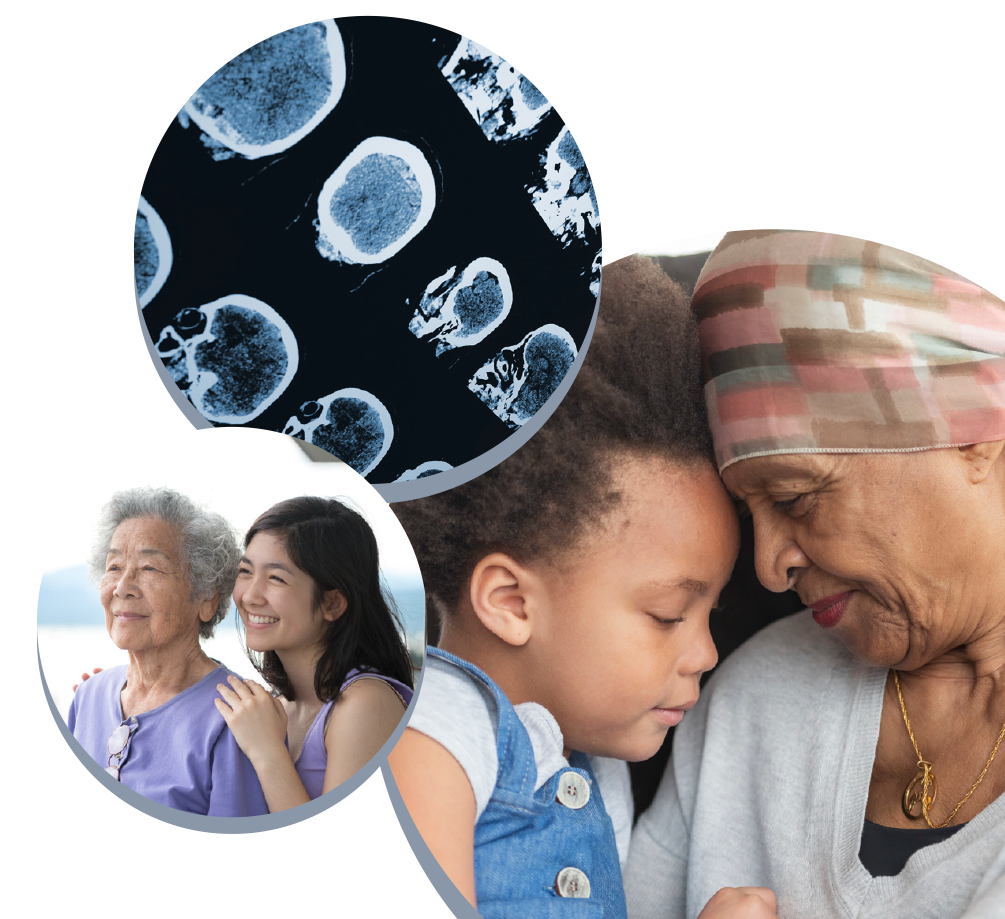New Insights through Imaging
What is the ADvance study, and why are we doing it?
Alzheimer’s disease (AD) is associated with the presence of specific proteins in the brains of people who suffer from this illness. An examination of the brain after death is the most definitive way to confirm presence of AD. The brain is complex, and some research is difficult or impossible to do with living people. Information from brain studies can help researchers and doctors better understand AD.
Thanks to brain donation, we hope to validate tools to detect AD while a person is alive so that it can be treated and perhaps, one day, cured.
Seeing brain changes in AD both during life and after death is important. Positron emission tomography (PET) imaging has the ability to visualize specific proteins related to the disease in the brain of living individuals with AD. It is used by doctors and researchers to help diagnose and manage AD and find better treatment for people living with AD or other dementias.
Examination of the brain following death helps confirm the diagnosis of AD, which can also provide closure and insight for loved ones.
Brain donation


The ADvance program
What is the ADvance study, and why are we doing it?
The ADvance trial is studying a new PET imaging compound called “18F-PI-2620”. This compound was designed to show tau proteins in a PET scan. Tau protein in the brain is a sign of AD. Prior studies of this compound in thousands of people showed promising results.
The ADvance Program aims to use PET imaging to help researchers see specific proteins in the brain during life and then compare those results with what they see in the brain after the person has passed.
Why should my family and I participate?
Studies like ADvance are critical to learning about and combatting AD. People who participate in the trial (those with AD and those without) will share a gift that lives on with meaningful impact and hope for others in the future.
- Specific information will be provided at the end of the study to confirm the diagnosis
- AD can run in families. By being informed of the diagnosis, the family can use the information to think about their own risk and plan ahead
- A conclusive diagnosis can also bring closure to the family
- Doctors and other experts gain insight into how the results of imaging correlate with changes found in the brain and how this insight can support the diagnosis of AD
- Comparisons made between people who do and do not have AD can clarify the type of disease they had
- Understanding the relationship between imaging findings and changes in the brain leads to a better understanding of AD and the development of more effective treatments
- Families report feeling a sense of comfort knowing their loved one’s contribution will live on and have a positive effect on the health of their community and beyond
What is involved?
SCREENING VISIT
Participants will undergo a brief exam to determine if they are eligible for the study
PET
IMAGING
Participants will receive at least one PET scan that will show a specific protein in the brain
BRAIN DONATION
Upon death, brain tissue will be sent for analysis to determine the amount and pattern of specific brain protein
REPORT OF FINDINGS
Researchers will analyze the results and provide a report to families at the conclusion of the study
Who can participate?
- Men and women 50 years of age and over
- Individuals with a projected life expectancy of less than 1 year
- Written informed consent from the subject or their legally authorized representative
- Those with the ability to complete the procedures (such as lying down in a PET scanner)
Brain donations are the best way to understand what happens in the brain when it is affected by dementia or other brain diseases. Brain donations help us make progress in finding new treatments and cures.
Yes! It is important to have healthy brain tissue to identify and understand the changes that result in disease and to be able to compare a diseased brain with ones that do not have the disease.
Your brain will be examined by a doctor, who will prepare a detailed diagnostic report about what was happening in your brain.
The rest of the brain tissue can be used for approved research. Importantly, one brain can provide tissues for several studies. The donation is fully honored and valued; no part of the brain is wasted.
Care and Respect
How does brain donation work?
- The process begins with discussions about this important decision with family, friends, and spiritual advisors. The decision to donate a brain is a family decision, as the family will need to act on the individual’s decision to donate
- The family informs the study center of the individual’s interest in the study and brain donation
- Once the individual is signed up, instructions will be provided to the family to notify the study center within a few hours of the individual’s passing and confirm consent to the donation
- The individual’s body will be transported to the brain donation facility or funeral home
- The individual’s brain will be removed in a manner that ensures there is no disfigurement
- The individual will be transported to the family’s designated location to proceed with funeral or cremation
- If requested, an autopsy report indicating the pathology findings will be provided to the family at the end of the study
What support and resources are provided to participants and their families?
- Transportation costs to and from the doctor’s office and PET facility, as well as meals on the days of the study visits will be covered
- Transportation will be arranged to the healthcare location where the donation will take place and to the location designated by the family for the funeral or cremation
- A contribution toward the costs of the funeral or cremation will be provided to the family

Why Participate and Donate Your Brain?
Be Part of Improving Diagnosis and Finding a Cure
Research using brain tissue is the most promising path to finding a cure for AD. Your PET scans and brain donation could be part of new discoveries leading to better understanding of AD and its treatment, diagnosis, prevention, and cure.
Provide Answers to Your Family
Your family may request a report, which provides a diagnosis and explains what was happening in your brain. Many families feel comfort and solace in knowing a diagnosis and the enduring legacy of their loved one’s deeply meaningful gift.
Give a Gift to Future Generations
Brain donation is one of the most important and generous gifts to give. Brain tissue donation provides a way of continuing to care for future generations by making possible a world in which AD and other brain diseases can be treated and prevented. It is a gift of hope for the future.
Why Participate and Donate Your Brain?
Be Part of Improving Diagnosis and Finding a Cure
Research using brain tissue is the most promising path to finding a cure for AD. Your PET scans and brain donation could be part of new discoveries leading to better understanding of AD and its treatment, diagnosis, prevention, and cure.
Provide Answers to Your Family
Your family may request a report, which provides a diagnosis and explains what was happening in your brain. Many families feel comfort and solace in knowing a diagnosis and the enduring legacy of their loved one’s deeply meaningful gift.
Give a Gift to Future Generations
Brain donation is one of the most important and generous gifts to give. Brain tissue donation provides a way of continuing to care for future generations by making possible a world in which AD and other brain diseases can be treated and prevented. It is a gift of hope for the future.
Current study locations
We are recruting patients in US, especially:
- Arizona
- California
- Florida
- North East (Connecticut, Massachusetts, New Jersey, New York, New Hampshire)
- Ohio
- Texas
- North Carolina
- South Carolina
- Nebraska
Resources
For additional program information, please see clinicaltrials.gov/ct2/show/ NCT05641688, follow us on Facebook, LinkedIn or email us at ADvance@life-mi.com.
Meet us
Meet us at one of the following congresses:


